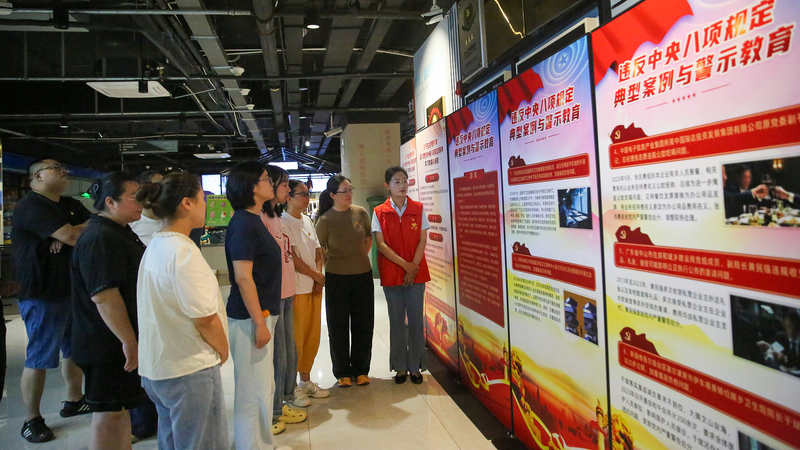Since its launch in 2012, the Communist Party of China's (CPC) eight-point rules have become the go-to code of conduct for Party leaders aiming to curb extravagance, streamline bureaucracy and strengthen public trust. But today, they stand for something bigger: a hallmark of self-reform and modern governance.
Code of Conduct Meets Agile Governance
Think of the eight-point rules as the CPC's "lean management" playbook. They require officials to:
- Learn directly from communities in grassroots field visits.
- Cut red tape in meetings and trim excessive documents.
- Avoid grandiose ceremonies, banners, red carpets and lavish receptions.
- Minimize traffic controls and venue closures for security.
- Limit media coverage of officials to essential reports.
- Maintain diligence and frugality in public and private life.
Data-Driven Impact
In the first eight months of 2025 alone, China's disciplinary bodies filed around 642,000 corruption and discipline cases, including top-tier officials. A monthly report from the CPC Central Commission for Discipline Inspection recorded 5,434 violations of the eight-point rules and penalties for 8,185 officials.
From high-profile "tigers" to grassroots cadres, the rules have tightened oversight and broken the cycle of harmful practices feeding corruption.
Global Anti-Corruption Collaboration
China is not fighting corruption in isolation. Through UN, APEC and G20 forums, it has championed initiatives like the Beijing Initiative for Clean Silk Road and the BRICS Denial of Safe Haven plan. Extradition treaties and judicial cooperation pacts with dozens of partners underscore its commitment to cross-border integrity.
The Road Ahead
As the CPC marks a new era of governance, the eight-point rules have evolved into more than a policy – they are a vision for transparent leadership and public accountability. By embedding these principles into daily practice, the Party aims to sustain public trust and inspire global conversations on self-reform.
For a generation of young global citizens, these rules offer a case study in how established institutions can reinvent themselves through clear codes of conduct and data-driven oversight – principles that resonate from boardrooms to startups around the world.
Reference(s):
cgtn.com




